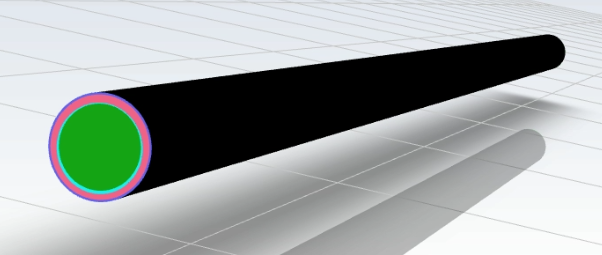-
-
May 9, 2024 at 6:07 am
sebastian.maluenda.m
SubscriberHello, I am simulating a double wall duct that has a PCM (phase change material) inside, however, shortly after starting to iterate it throws a "floating point exception" error, I would like to know what could be causing this error.
For more details, I seek to determine the cooling of the system from a natural convection in the external wall of the duct, for this I defined the values that the program requests in addition to making a "patch" of the temperatures presented by each cell that compose the system. The modules that I have activated are the energy module and the solidification and melting module, in addition to having gravity activated.
Previously I carried out a couple of similar simulations without reaching the phase change of the material, which did not present any type of error, but when simulating with the phase change it throws this error.
-
May 9, 2024 at 10:40 am
Rahul
Ansys EmployeeIn fluent floating-point error can be caused by many factors such as, improper mesh size, defining some property close to zero. However, the actual reason can be determined by changing one quantity (can be mesh, model, parameters, boundary conditions etc.) at the time.
-
May 9, 2024 at 4:39 pm
sebastian.maluenda.m
SubscriberThe only difference with respect to the simulation that did work is that in this one there is a phase change, could the error be due to the properties of the PCM? Some properties such as density are defined as functions of points, however they are fixed values that I cannot vary too much.
-
-
May 9, 2024 at 10:52 am
Rob
Forum ModeratorWhat boundaries are there for the PCM zone? Is it liquid or solid to begin with?
-
May 9, 2024 at 4:35 pm
sebastian.maluenda.m
SubscriberHello Rob, as for the type of zone, it is a liquid, and as for the boundary conditions, its walls are coupled to the walls of the duct, which are made of steel.
-
-
May 10, 2024 at 9:02 am
Rob
Forum ModeratorSo no inlet or outlet for the PCM? And it's density varies with temperature?
-
May 10, 2024 at 4:21 pm
sebastian.maluenda.m
SubscriberYes and yes, the PCM is completely encapsulated, and indeed its density varies with temperature, along with its thermal conductivity and its specific heat.
-
-
- The topic ‘Error in Heat Transfer Simulation’ is closed to new replies.



-
3477
-
1057
-
1051
-
940
-
912

© 2025 Copyright ANSYS, Inc. All rights reserved.








